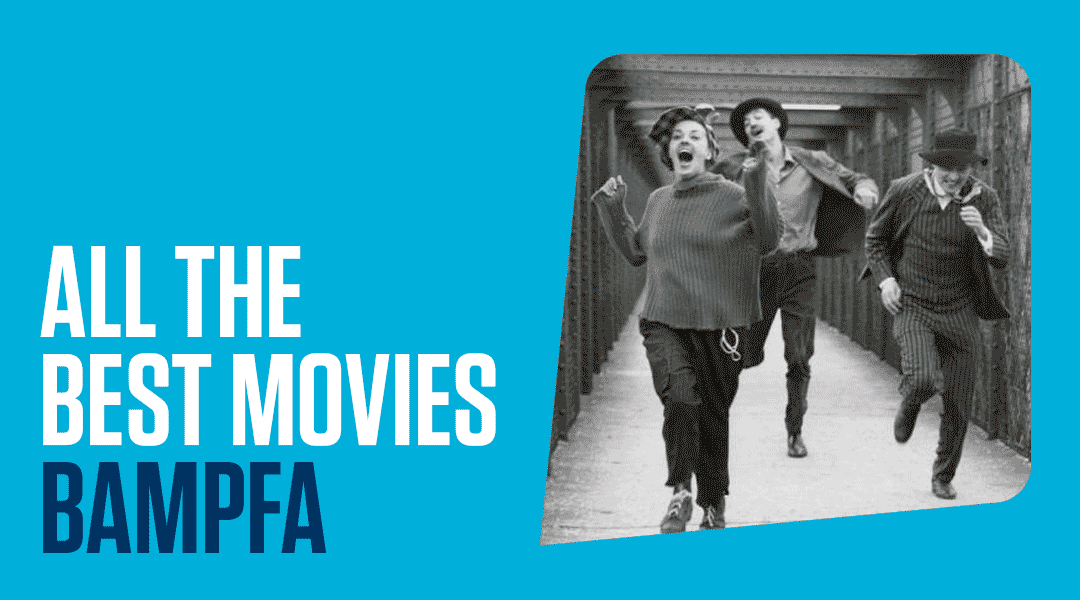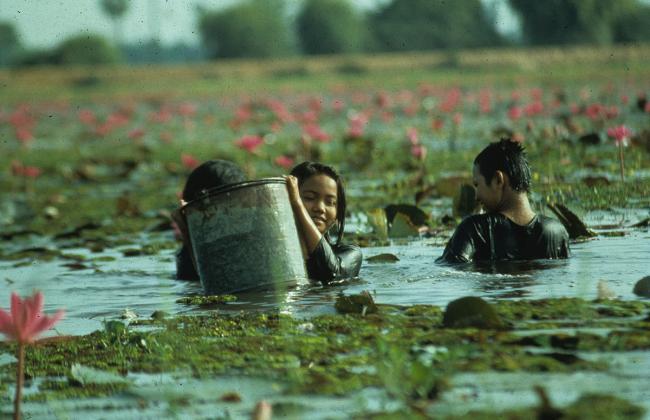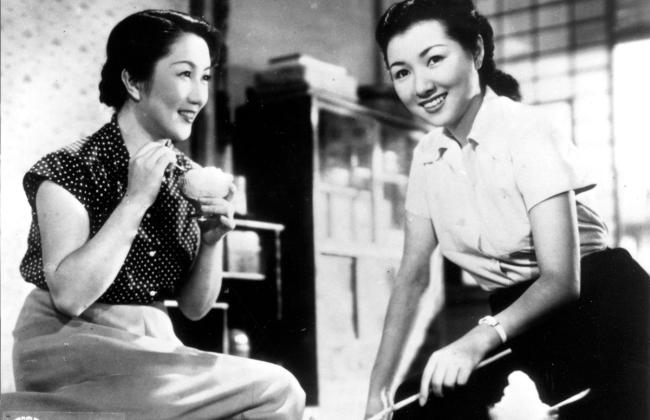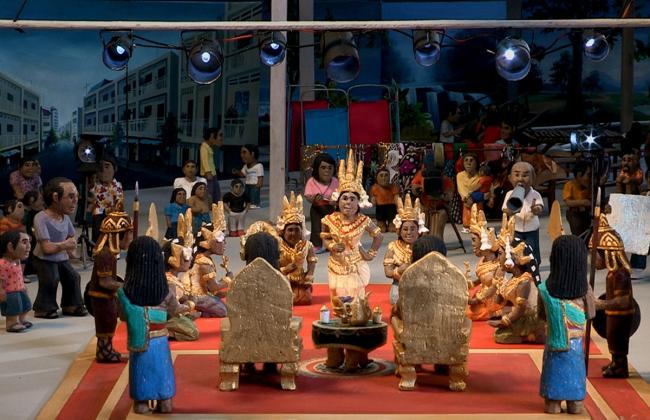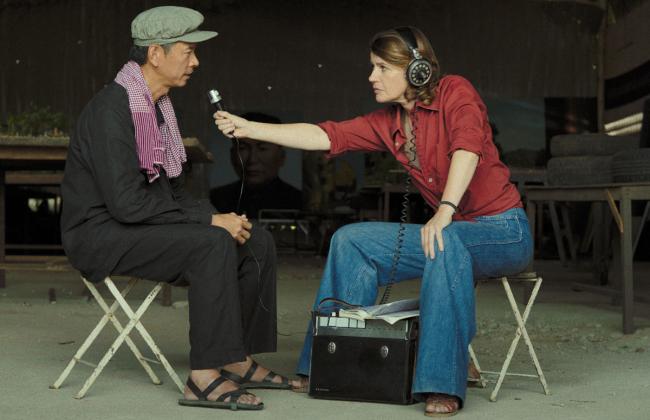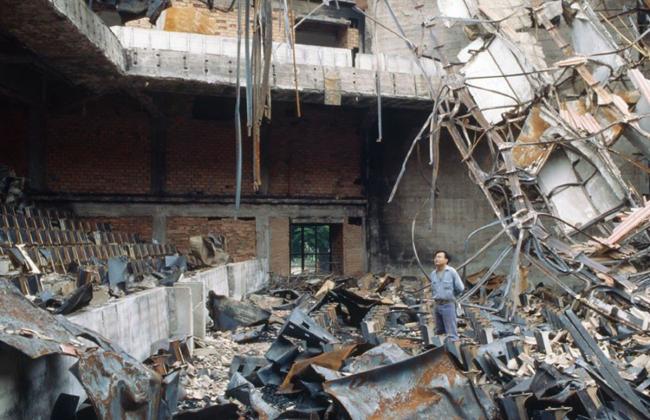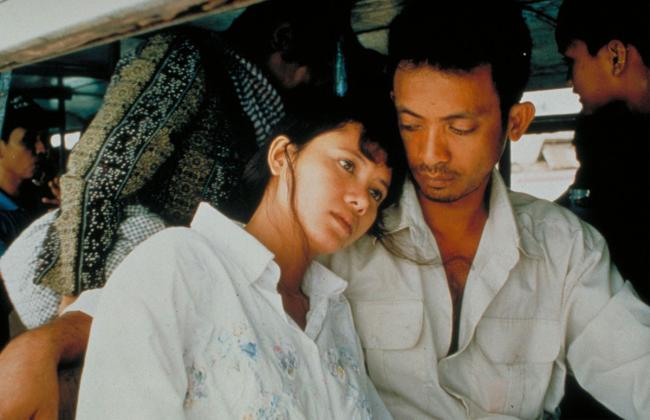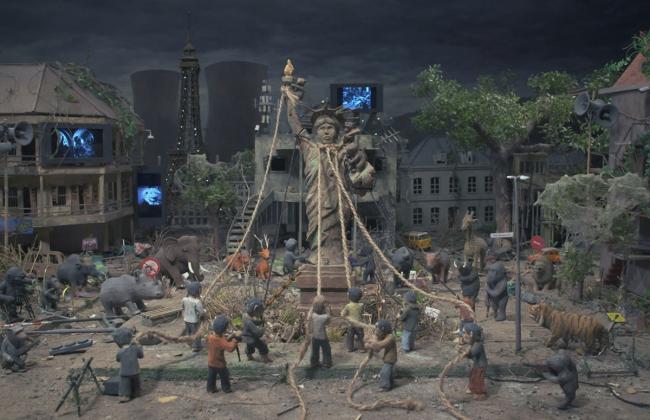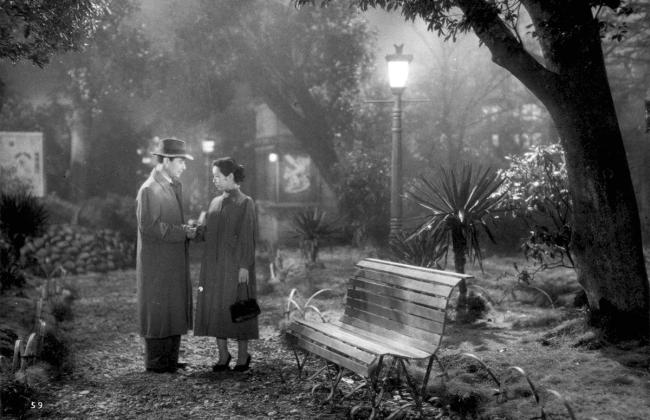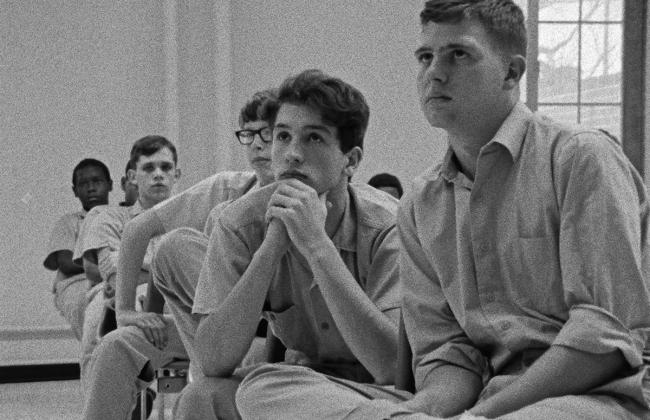🎟️ Winter Film Tickets on Sale This Week!
Friday, November 7 at 11 AM
Tickets go on sale this Friday for our winter film season. Don't miss the influential and atmospheric films of Wong Kar Wai; a retrospective of François Truffaut with introductions and post-screening discussions led by his daughter Laura Truffaut; films by local Bay Area treasure Jerry Ross Barrish; recent restorations of Akira Kurosawa films, and more.
Want early access and half-price film tickets to all the best movies? Join as a BAMPFA member starting at just $40/year.
The Films of Tomonari Nishikawa
Tomonari Nishikawa’s films are a thrilling cinematic dialogue between the places, spaces, and architecture he documented and the filmstock, cameras, and lenses he used to record.
Series: Alternative Visions
Rice People
Directed by Rithy Panh, 1994
Introduction: Sylvia Tiwon
Rithy Panh’s debut narrative feature, finished only a few years after Cambodia’s decade-long post–Khmer Rouge civil war, was the country’s first-ever submission to the foreign-language category at the Oscars.
Lightning
Directed by Mikio Naruse, 1952
Adapted from a Fumiko Hayashi novel, and starring Mikio Naruse’s favorite actress, Hideko Takamine, this major work illuminates one of the director’s key themes: entrapment within the family system.
The Missing Picture
Directed by Rithy Panh, 2013
Introduction: Michael Mascuch
Rithy Panh’s revelatory look at his childhood experiences surviving the Khmer Rouge won the 2013 Un Certain Regard prize at the Cannes Film Festival. Clay figures, archival footage, and spoken words weave a stunningly vivid picture of the filmmaker’s and Cambodia’s past.
Meeting with Pol Pot
Directed by Rithy Panh, 2024
Introduction: Penny Edwards
Three French journalists visit Cambodia in 1978 and discover the deadly gap between what is shown, what is hidden, and what they are “permitted” to document. “A hauntingly timeless depiction of power and its mechanisms” (Variety).
The Burnt Theatre
Directed by Rithy Panh, 2005
Cambodia’s once-grand, now-abandoned former National Theatre is the site of Rithy Panh’s spellbinding investigation of how to rebuild one’s country when culture is nearly forgotten and capitalism all-powerful. Chosen for the 2005 Cannes Film Festival.
One Evening After the War
Directed by Rithy Panh, 1998
Introduction: Penny Edwards
Set in 1992, after two decades of war finally ended in Cambodia, this atmospheric urban noir/doomed romance follows a demobilized soldier and a dance-hall girl as they drift through a Phnom Penh of neon and dust, still haunted by death.
Everything Will Be OK
Directed by Rithy Panh, 2022
A dystopian, Animal Farm–like world created out of clay figurines provides an ingenious backdrop to Rithy Panh’s intellectually barnstorming look at twentieth-century brutality. History lesson, archival footage masterclass, folk-art animation, and science fiction narrative in one, inspired by Chris Marker, Dziga Vertov, Umberto Eco, Mao, 2001, and more.
Wife
Directed by Mikio Naruse, 1953
Another affecting look at the everyday irritations of marriage, but with an atypical twist for Naruse—this time, the husband is the more sympathetic character.
Juvenile Court
Directed by Frederick Wiseman, 1973
Introduction: Judge Trina L. Thompson
4K Digital Restoration
Juvenile Court finds troubled youth and their families confronted by the American justice system in Memphis, Tennessee. It is Frederick Wiseman’s first film to eclipse a two-hour run time, “but its cumulative impact is so powerful that it seems less than half that long” (Image).
Gunvor Nelson: Program 1
In Conversation: Steve Anker, Lynne Sachs, John Sundholm
BAMPFA Collection
Gunvor Nelson’s My Name Is Oona, a hypnotic portrait of the artist’s daughter and an essential classic of experimental cinema, screens with Schmeerguntz, a touchstone of feminist cinema, and Frame Line and Light Years, made in Sweden.
Series: Gunvor Nelson: A Life in Film
From Our Friends at
The Freight
Mali Obomsawin Quartet
Live Score Performance to "Sugarcane"
Sat / Nov 8 / 8PM
At The Freight in Downtown Berkeley
Composer, multi-instrumentalist, and proud citizen of the Odanak First Nation, Mali Obomsawin scored the Nat Geo documentary Sugarcane, which shed light on the injustice and abuses of the Canadian Indian residential school system. Join our friends at The Freight for a special screening of this award-winning documentary with Mali Obomsawin and her quartet performing the score live.
Accessibility
If you have any questions about accessibility or need accommodations to attend a film screening, please contact us at bampfa@berkeley.edu or (510) 642-1412 (Wed–Sun, 11 AM–7 PM) as soon as you can. Advance notice helps us fulfill your request.

